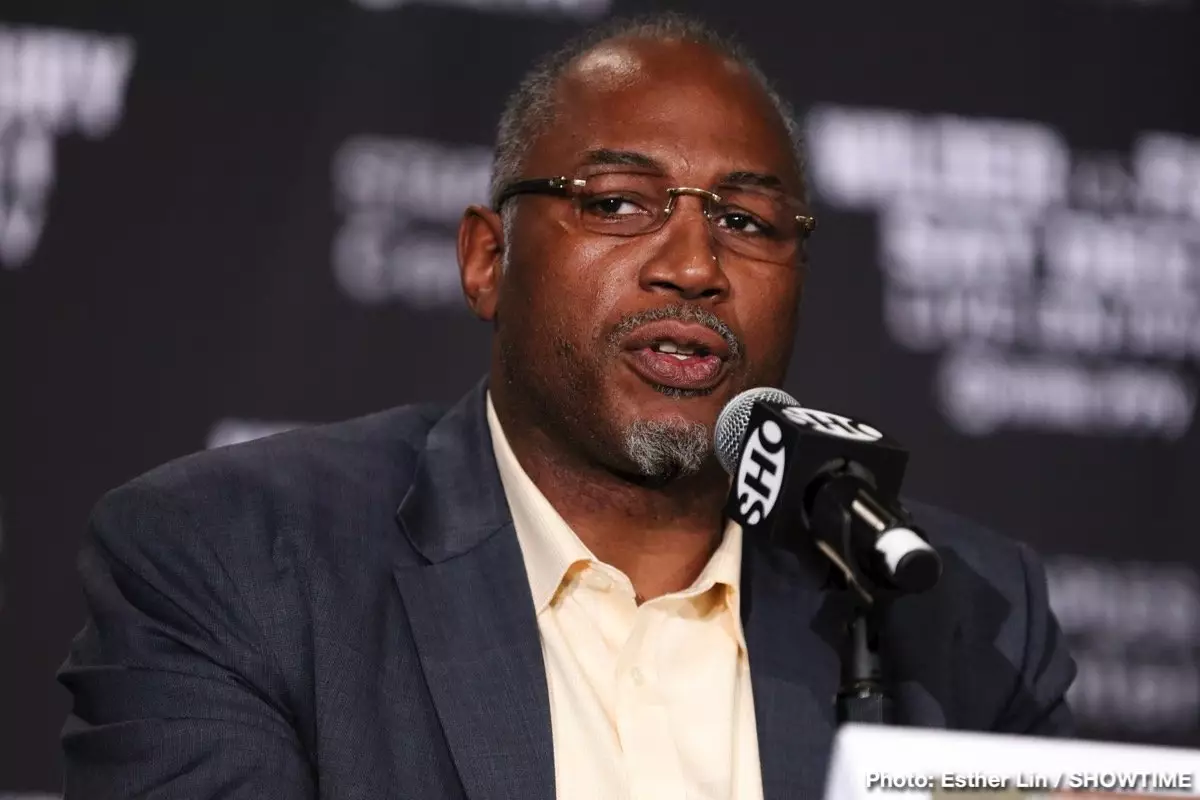Lennox Lewis stands tall among the legends of heavyweight boxing, celebrated not just for his impressive physique and boxing skills but also for his strategic brilliance inside the ring. Over the course of his illustrious career, Lewis compiled a remarkable résumé that includes victories over formidable opponents like Razor Ruddock, Frank Bruno, Mike Tyson, Frans Botha, and Andrew Golota. Each bout contributed to his legacy as one of the greatest heavyweights of all time. However, amidst the myriad knockout victories and highlight reel finishes, there are two fights that resonate more profoundly in Lewis’s memory: his revenge wins against Oliver McCall and Hasim Rahman.
The nature of sports is such that victories often shine the brightest, but defeats can offer invaluable lessons that shape a competitor’s future. Lennox Lewis’s defeat to Hasim Rahman on April 22, 2001, serves as a prime example of this philosophy. In that bout, Lews, who was widely expected to defend his title easily, was knocked out in the fifth round—a shocking outcome that left fans and analysts alike reeling. This loss was particularly crushing given Lewis’s confidence and preparation leading into the fight. However, it was not the defeat that defined Lewis but rather his response to it. In boxing, as in life, the true measure of a champion is the ability to respond to setbacks, and Lewis was determined to prove that he could rise to the occasion.
In the aftermath of his loss, it was an unexpected encounter with Nelson Mandela that provided Lewis with the motivation and wisdom he needed to reclaim his title against Rahman. The two men met following the fight despitе the defeat; Lewis, with a penchant for seeking growth from adversity, visited Mandela’s home and found solace in the words of the iconic leader. Mandela, known not only for his political prowess but also for his ability to inspire hope and resilience, reminded Lewis to keep his chin up and keep his right hand up, both literally and metaphorically.
This conversation with Mandela was transformative. “You’ll get him next time,” Mandela told Lewis, instilling in him the confidence necessary for a victorious return. By internalizing Mandela’s encouragement, Lewis could channel the hurt from his previous loss into motivation, preparing him for their rematch later that year.
When Lewis stepped back into the ring with Rahman for their rematch on November 17, 2001, he was a changed fighter—rejuvenated and focused. The bout concluded spectacularly, with Lewis successfully knocking out Rahman in the fourth round, effectively avenging his earlier defeat. This moment was not just a victory but a triumph laced with personal growth and determination. Lewis celebrated not only his success but also the invaluable lessons learned during his journey back to the top.
Additionally, the aftermath of this fight saw Lewis adopting a new moniker for Rahman—“Has-been Rahman”—a playful jab that illustrated his dominance over his opponent and underscored the psychological edge he gained from both his defeat and his discussion with Mandela. The triumph was sweetened by the knowledge that he had risen from the ashes of defeat, something that many athletes aspire to achieve.
In an era where the heavyweights are often scrutinized for their performance in the ring, Lennox Lewis holds the unique record of having beaten every fighter he faced. Such a feat speaks volumes about his consistency and level of skill. However, his journey transcends mere statistics; it is a narrative built on resilience, the capacity to learn from failures, and, notably, the impact of external inspirations.
The intertwining of Lewis’s boxing career with the wisdom imparted by Nelson Mandela serves as a testament to the power of mentorship and encouragement. Mandela’s influence on Lewis is a reminder that champions are not merely defined by their athletic prowess but also by the strength they draw from their experiences—both within and outside the ring. The legacy of Lennox Lewis is thus not only one of sporting excellence but also of personal growth, resilience, and the unyielding spirit to bounce back after setbacks.

